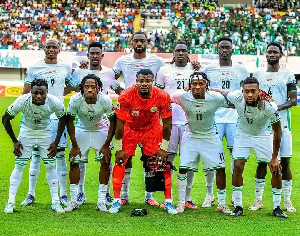Health News of Sunday, 18 October 2020
Source: vanguardngr.com
CISLAC calls for sustainable funding to tackle malnutrition
The Civil Society Legislative Advocacy Centre (CISLAC), has called for sustainable funding for the prevention and treatment of Severe Acute Malnutrition (SAM) in the country.
The CISLAC Executive Director, Auwal Rafsanjani made the call during a legislative summit on prevention of malnutrition and treatment held on Saturday in Kaduna.
The summit was attended by legislators and nutrition officers from Kano, Katsina, Jigawa and Gombe states.
Rasfsanjani said statics had shown that malnutrition has reduced the Nation GDP by eight per cent, with Nigeria having the highest burden of malnutrition in Africa.
“Malnutrition impedes physical growth and cognitive development of a child, with one in 32 per cent of Nigeria’s children experiencing nutrition deficit,” he added.
He said that the summit was to provide an enabling platform for the state houses of assembly to proffer holistic solution to the current trend and challenges confronting adequate and sustainable financing for prevention and treatment of SAM.
According to him, prevention and treatment of malnutrition should be given priority through appropriate legislative intervention. He urged the states legislators to appropriate adequate funds for nutrition intervention in the 2021 budget, noting that the N146.01 million in the Federal budget to cater for million of children requiring treatment in the country was grossly inadequate.
Rafsanjani therefore urged the National Assembly to do the needful as it deliberate on the 2021 federal budget, in the interest of Nigerian children.
Alhaji Abdulazez Gafasa, Speaker, Kano State House of Assembly, said the legislature in Kano is working with all relevant partners on nutrition to provide priority attention in tackling severe acute malnutrition.
Also, Alhaji Abubakar Kurba, Speaker, Gombe State Assembly, described the summit as apt, and pledged to ensure that allocation for nutrition interventions is given proper attention in the state’s 2021 budge. The Majority Leader, Jigawa House of Assembly, Alhaji Abu Mohammed, described proper nutrition as very important for child development.
He said that the Jigawa government has already made huge allocation for nutrition interventions in 2021. A Nutrition expert, Mohammed Murtala, said Nigeria is one of the 20 countries responsible for over 80 percent of global malnutrition cases. Murtala added that approximately 2.6 million under 5 year children are affected by malnutrition.
He explained that malnutrition has hindered socio economic development of the country, “because nutrition has a powerful influence on growth, development and productive life of individual countries.”
He said that it was necessary for children to access proper nutrition in the first 100 days of their life, in order to have better potential of attaining healthier life and better education outcome.
The News Agency of Nigeria (NAN) reports that nutrition officers from Kano, Katsina, Jigawa and Gombe states made presentations during the summit. They all complained that poor funding was hindering proper interventions in tackling severe acute malnutrition in their states.
The nutrition officers stressed the need for more support from government and individuals to nutrition interventions. Abdulhadi Abdulkadir, the nutrition officer in Katsina, said the state is likely going to have an increase in severe acute malnutrition as a result of insecurity challenges in many rural communities.
Abdulkadir, however, said from January to March 2020, the state had recorded about 8,012 cases of severe acute malnutrition out of which 91 percent recovery was recoded He said that their major challenge was insecurity, inadequate community participation and poor attention given to nutrition interventions in the state.
The nutrition officer from Jigawa, Magaji Ahmed stressed the need for the state government to fast track the release of funds for nutrition interventions. Similarly, Hajiya Halima Yakasai, said in Kano State, their major challenge was lack of full support for nutrition activities especially by line ministries and agencies, and non release of funds.












